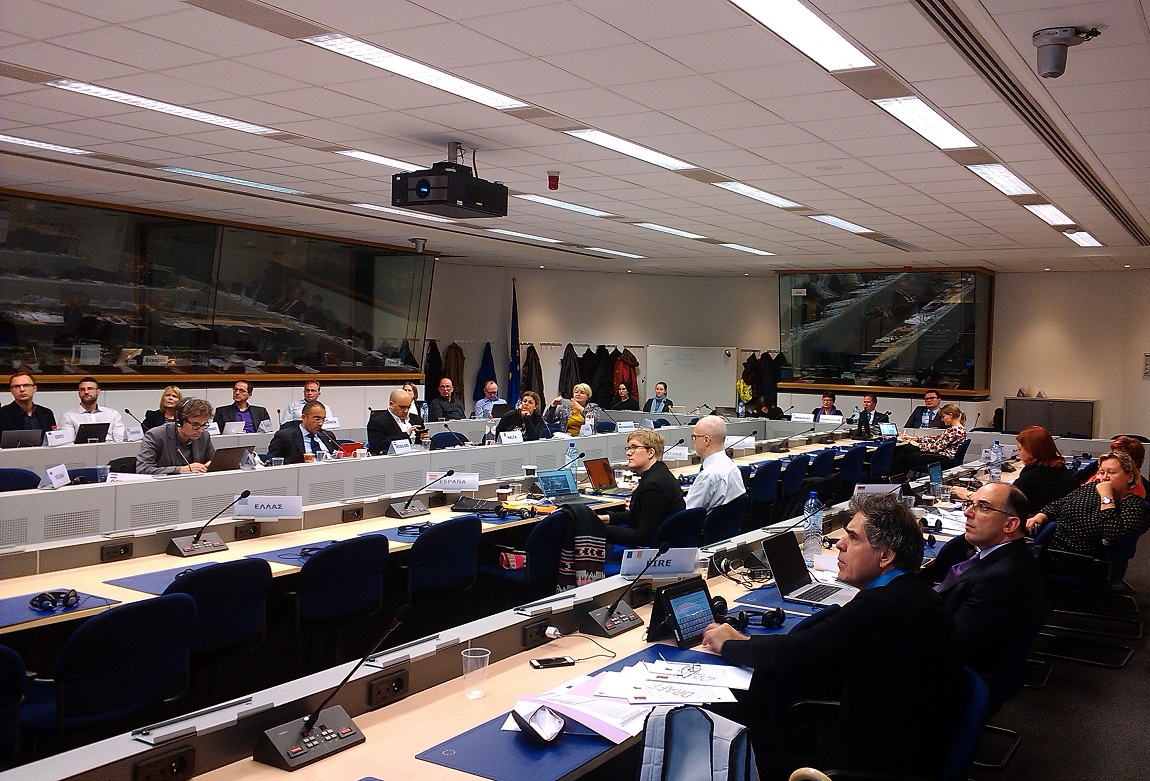European education social partners commit to promote social dialogue and decent workplaces in education at annual plenary meeting
Published:
On 8 November 2016, European Sectoral Social Dialogue Committee in Education (ESSDE) delegates from ETUCE and EFEE member organisations gathered in Brussels to conduct their annual Plenary meeting, with the support of the European Commission. The ETUCE President, Christine Blower, chaired the meeting. Some of the core objectives of 2016 ESSDE Plenary aim were: to evaluate the activities carried out jointly in the frame of the current ESSDE Work Programme 2016-2017 along with presenting future initiatives; to discuss and update the knowledge on recent trends in the education sector regarding open and innovative education, including the digital era and changes in the demand and the provision of education, schools and university of the 21st century; and to adopt joint social dialogue texts.
The meeting benefited from additional presentations from the European Commission providing information on open and innovative education as well as on digital skills for the European labour force and for lifelong learning. The session also looked at the European Commission’s initiative ‘New Skills Agenda for Europe’ and at how education social partners could contribute to its implementation. ETUCE delegates in the ESSDE Plenary meeting expressed their views reflected in the ETUCE Statement on the New Skills Agenda (2016), the ETUCE Resolution on Shaping the Future of the Teaching Profession (2014) and provided fruitful national examples.
ESSDE delegates were presented the outcomes of the joint ETUCE/EFEE project on social dialogue and capacity building and laid down the follow-up initiatives. The joint ETUCE/EFEE project targeting the promotion of decent work places and a healthier working life was presented as well.
ESSDE delegates adopted the following joint texts, which add value to the European Education Social Dialogue and aim at improving concretely the wellbeing of teachers, educators and school leaders in their workplace:
- Joint ETUCE/EFEE Statement on Promoting the potentials of the European Sectoral Social Dialogue in Education
- Joint ETUCE/EFEE Declaration on Preventing and Combating Psychosocial Hazards in the Education Sector
- Joint Practical Guidelines on How to Promote Joint Social Partner Initiatives at European, National, Regional and Local Level to Prevent and Combat Psychosocial Hazards in Education
Concluding the meeting, ESSDE delegates discussed on the dissemination of the project outcomes and follow-up strategies to guarantee the biggest possible impact of their joint work.